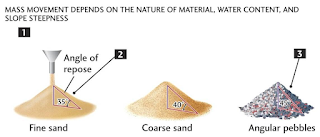ENCAPSULATION PROCESS:
Globex Method:
- The lipophillic fill and the shell formulation are stored in separate containers, both kept warm.
- The fill and the shell material are pumped through a concentric double capillary, with fill in the inner one. The fill is pumped in pulses to give fill volumes between 20 to 600 mg.
- Here, the formation of capsule depends upon the interfacial tension between the fill and shell material.
- The shell material possesses a higher surface tension. In attempt to reduce the surface tension, the droplet is formed. As a result of this the seamless round soft capsules are formed.
- The end of the double capillary is immersed in a cooling bath containing a liquid usually liquid paraffin which is kept at about 4 ˚C
Advantages:
- Seamless capsules, which are tamper-evident.
- Free of contamination or air entrapment.
- Risk of leakage is minimal.
Capacity:
- 10,000-40,000 capsules per hour.
Rotary Die Process:
- At the same time when two film sheets are heat-sealed, he content liquid is filled, where the film sheets are dilated and formed by injection pressure.
- The gel and fill mobile vessels are then taken to the encapsulation bays where each encapsulation machine is segregated in individual bays.
- The molten gel is pumped to the machine and two thin ribbons of gel are formed, one either side of the machine.
- These ribbons then pass over a series of rollers and over a set of dies that determine the size and shape of the capsules.
- The fill is fed from its container to a positive displacement pump, which accurately doses the fill and injects it between the two gelatin ribbons prior to them sealing together through the application of heat and pressure.
- The resultant capsule is incredibly flexible due to the water added to the gel mass and this excess has to be removed.
Advantage:
- Capsules produced can have all kinds of shape, sizes, and can be made with different colours for each half.
- The formation of capsules is not governed by surface tension phenomena and hence there are no restrictions on fills other than compatibility/ incompatibity with the shell. Hence wider variety of fills than is possible in the Globex method can be encapsulated.
- Higher capacity: Upto 100,000 capsules/hr
CAPSULE PRE-SHAPING
,WASHING AND SEMI- DRYING:
- Immediately after manufacture capsules are subjected to “naptha” wash to remove mineral oil form the outer surface of the capsule.
- Centrifuge is used for capsule washing
- Products are pre-shaped, semi dried in tumbler washer drier units.
- Tumbler drier unit having temp. <35˚C which removes all the solvent used in washing and 50 – 60% of water
THE PHARMAGEL TUMBLE
DRYER:
- The Pharmagel Tumble Dryer is an expandable, flexible and fluid bed soft shell capsule drying system.
- The fluid bed system of this dryer gives a rapid and effective drying, and is designed to comply with all recent GMP requirements, and prevents the cross contamination common in other dryers.
- Completely built in AISI 316 stainless steel and Nylon for the parts in contact with the product, the Tumble Dryer design enables a quick and rapid change of baskets between each batch, so preventing foreign capsule contamination.
- It was created expressly for the high production of the MK76 and MK62 Pharmagel Encapsulation Machines, and suits both oil based and PEG based softgel products.
- Upto 120 Kg of fresh capsules can be pre-dried in 90-150 min.
THE PHARMAGEL DRYING
TUNNEL SYSTEM:
- This is constructed from modular panels in stainless steel AISI 304.
- The tunnels have a laminar flow air filtration unit, which allows a better and more efficient drying of the capsule products.
CAPSULE INSPECTION:
- 100% inspection is performed on the external appearance, etc.
- Capsules are manually inspected for physical defects.
- For precise quality assurance for sizes and weights, Equipment
- such as sizing and sorting can be used.











Comments
Post a Comment